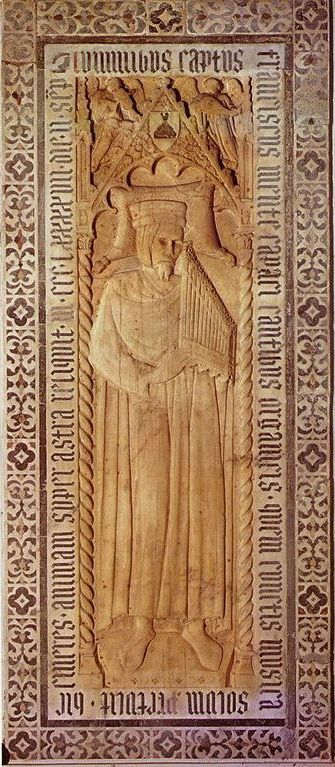Francesco Landini: L’Occhio del Cor
Songs of Invisible Love
La Reverdie, Christophe Deslignes
Arcana A462. 64’56

Although famed today as a musician, organ & organetto player and composer in his day, Francesco Landini (c1330-1397) was equally as well- known as a poet. In 1368 he was named Poet Laureate in Venice, an honour he shared with Petrarch. He was organist of San Lorenzo in Florence from 1365 until his death where his (previously lost) tombstone can be seen, albeit tucked away in a corner His poetry only survives today by the fact that he set so much of it to music, as explored in this recording from La Reverdie with organetto player Christophe Deslignes. Landini’s name is open to question, the former assumption that he was the son of a painter is now disputed and, with it, the related link with the Landini family. That name will be hard to shake off, but nowadays prefered names are the contemporary Francesco da Firenze, Francesco degli Organi or Francesco il Cieco (Francesco the blind)
Perhaps not surprisingly, much of Francesco’s poetry has sight and eyes as a theme or sub-text. This CD, with its title of L’Occhio del Cor (the heart’s hye) explores this aspect of his writing, surmising in the detailed programme notes that his blindness affected his poems. Several poems certainly seem to refer to aspects of Francesco’s own life, although so little is known about his life that it is hard to be certain of this. Most of the pieces are ballades, two performed instrumentally. Francesco’s own instrument, the organetto (shown on his tombstone, pictured), is prominent in several tracks, playing with sensitivity to the delicate winding possibility of the little organ, pumped by the player with his non-playing hand. 
The five members of La Reverdieall all sing and play recorders, vielles, rebec, and harps, and produce an excellent consort sound with impressive intonation. The three sopranos, in particular, sound lovely on, for example, L’alma mie piang’e mai non può aver pace. The CD booklet gives full details of who does what on each track, as well as the instruments used and their provenance.
As is typical of trecento texts, what may appear to be love songs to a beloved often have religious connotations. One particularly touching text comes in Non per fallir di me tuo vista pia which translates as:
Through no fault of mine
I can no longer
Enjoy the lovely sight
You once made possible
But I shall never leave you
It ends with a plea to a “Lady and Lord”, a clear reference to both a divine and earthly vision that he once delighted in seeing before he was “wrongly denied”. The CD notes help the listener in understanding the rather complex world of 14th-century Italian poetry with its mix of medieval earthly and sacred love
If you are not familiar with Italian music of this period, this is an ideal introduction. But it is also an important insight into the life and works of one the known first-known named organists and, indeed, a proud tradition of blind organist composers to this day. More information about Landini can be found here.
